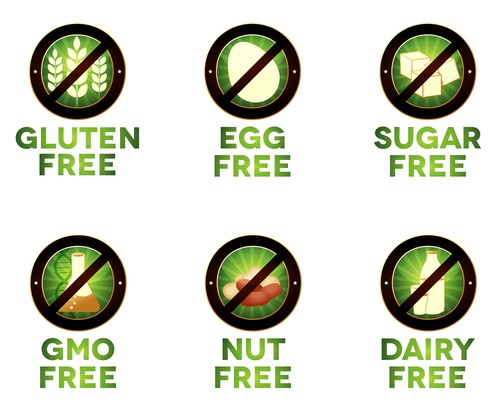Number of results 5
for intolerance
16/09/2018 - Food Intolerances: do they only affect some people?
 A food intolerance or allergy is a rejection of a certain food that can manifest itself in one or several of many ways, though principally in the form of gastrointestinal and dermatological problems.
A food intolerance or allergy is a rejection of a certain food that can manifest itself in one or several of many ways, though principally in the form of gastrointestinal and dermatological problems.We perceive these as illnesses, given that the body rejects foods that we consider to be healthy. This happens because the body considers these foods to be harmful. But according to the Natural Hygiene perspective, the human body is wise, and it always generates the most adequate responses towards survival. In that case, why is it that it reacts in such an exaggerated way to regular foods?
A possible answer to this question is that perhaps these foods that people develop intolerances/allergies to are not as healthy as we thought. But why do only some people reject these foods?
29/04/2014 - Strategies for identifying intolerances
 Identifying intolerances is one of the most important issues in order to find the diet that suits better for a person.
Identifying intolerances is one of the most important issues in order to find the diet that suits better for a person.Almost every person that suffers some kind of disease, chronic o repetitive acute sickness, is affected by some kind of food intolerance. In some cases, avoiding this intolerance can even heal the person.
The symptoms of a food intolerance are delayed, from some hours to some days, to the contrary of an allergy which develops an immediat reaction. This is why intolerances are so difficult to find out.
It is difficult to test all foods that have some chance of being problematic. However, you can use different strategies to identify whether you have any kind of intolerance.
20/11/2013 - Fructose intolerance
 The origin of fructose intolerance is fructose malabsorption. It can cause gas, cramping and diarrhea and affects one in three adults. If you have any of these symptoms then read this article. It explains why fructose malabsorption cause these symptoms and how to stop them. The source of this article is SCDLifestyle.com
The origin of fructose intolerance is fructose malabsorption. It can cause gas, cramping and diarrhea and affects one in three adults. If you have any of these symptoms then read this article. It explains why fructose malabsorption cause these symptoms and how to stop them. The source of this article is SCDLifestyle.com15/03/2013 - Could hay fever be a nutritional problem?
 Several hypothesis try to give a reason of why hay fever or allergic rhinitis is touching more and more people in development world: hygiene hypothesis, genetic predisposition, polluted environment, ... but, what if food plays a determining role as trigger?
Several hypothesis try to give a reason of why hay fever or allergic rhinitis is touching more and more people in development world: hygiene hypothesis, genetic predisposition, polluted environment, ... but, what if food plays a determining role as trigger?25/01/2013 - 10 Reasons to Avoid Gluten and Modern Cereals
.jpg)
When we talk about gluten-free products we think rather in wheat, barley and rye, because the protein that they contain is the origin of celiac disease. But in fact, the definition of gluten is "a substance present in cereal grains, especially wheat, that is responsible for the elastic texture of dough" (Oxford dictionary), that is to say, that all grains contain gluten in more or less quantity.
But is that the gluten in all kind of grains as bad?
Can the gluten represent a problem not only to celiac persons but also others?
What is gluten sensitivity?

 Gemma Calzada is a Holistic Nutritionist Ph.D. and a certified GAPS practitioner, accredited by ASCA. Her mission is to improve health through nutrition and to help people suffering from a dietary intolerance to live happily.
Gemma Calzada is a Holistic Nutritionist Ph.D. and a certified GAPS practitioner, accredited by ASCA. Her mission is to improve health through nutrition and to help people suffering from a dietary intolerance to live happily. 
